Since this is my first year tending a small garden pond, I needed fall water garden care tips. I turned to my friend and gardening mentor, Liz Dunn, for advice.
I joke that Liz is like the Johnny Appleseed of water gardens: half of the county probably has a plant or two from her ponds! Her beautiful water gardens have been profiled in Virginia Gardener magazine, and she is a Heart of Virginia Master Gardener. I am the proud owner of a little pond thanks to Liz’s gift of a water lotus.
Liz and her husband live on a large farm in rural Virginia and raise cattle, hay and other produce. Liz graciously agreed to answer my questions by email. I hope you find them as helpful as I did.
Fall Water Garden Care
Does a water garden need any special preparation for the winter?
Liz Dunn (LD):
As your water garden plants seem to have more spent leaves than new leaves it is time to think about winterizing the garden pond. Floating plants like water lettuce and water hyacinth are not winter hardy in this area and do not hold over well. As freezing temperatures make these plants unacceptable looking, remove them from your water garden and add to your compost bin. Non hardy aquatic plants that can be wintered over as house plants should be removed from your ponds or tub gardens and brought inside. Hardy plants in pots can usually stay where they have been all summer. Lowering them to the pond bottom is not necessary unless winter temperatures cause the pond to freeze below the rim of the pots. Hardy plants most sensitive to freezing are pickerel rush, Thalia, and arrowhead. These can be lowered to the bottom of the pond or covered with deeper water. Hardy water lilies should be left at their normal pond depth. Remove stems and leaves of plants as they turn yellow. Don’t prune any new foliage growth that is initiated during the winter and don’t fertilize during the winter months.
Does it depend on the size or depth of the pond or container?
LD: To prevent the pond from freezing over completely in a large above ground pond or in-ground pond, keep the water moving by operating the pump throughout the winter. You can usually run your waterfall during freezing weather, but you should disconnect statuary or fountain nozzles and direct the water flow from the pump straight up toward the surface. If electricity is interrupted during freezing weather, you will have to wait until the tubing thaws to turn the system back on.
Above-ground tub gardens should have their pumps removed. Tub gardens of less than 20 gallons may need to be dismantled if they are above ground to prevent them from freezing solid.
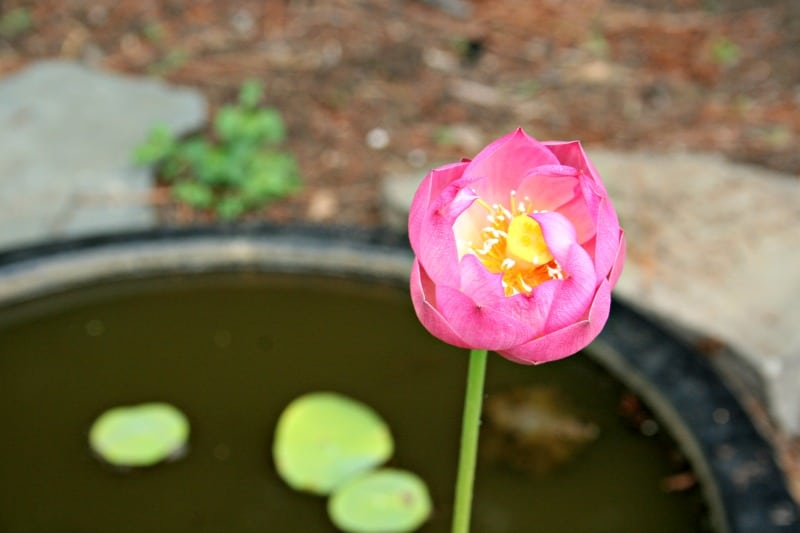
How do you store water plants if you must take them out of a container for the winter?
LD: If you need to dismantle your small pond, the hardy plants can be held in an unheated garage or room where it does not freeze. Lilies and lily like plants will need to have water over their crown and marginal plants can be kept damp. You may want to change the water every couple of weeks to keep it fresh. Wait until spring when you are setting up your pond again to divide or repot your plants.
Can simple pond fish such as goldfish (not koi) live outside in the winter?
LD: A frozen pond is not harmful to goldfish if the pond is relatively clean before it freezes over. The fish remain dormant below the ice right along with the plants and frogs. Goldfish are cold blooded which means that their body temperature will change based on their environment. They slow down as the water temperature cools and eat very little. Do not feed regular fish food during the winter or at any time the water temperature is below about 60 degrees.
Never break the ice by striking the pond! Hitting the ice can burst or damage the air bladder of the fish causing death. Melt through the ice using hot water poured in a pan that is placed on the ice if you need to if the ice remains frozen for an extended period.
Do you cover your pond in the winter? Why or why not?
LD: Here in Central Virginia, fall weather means falling leaves. Keeping the pond clean can be as simple as occasional removal of leaves from the pond’s surface. Once the leaves sink to the bottom of the water garden they are more difficult to remove. A large number of decomposing leaves use lots of oxygen and can lead to water quality trouble if the pond freezes over completely. Some folks opt to cover their pond with netting so that the leaves cannot get in. A good rule of thumb if you plan to net is do so once the leaves start changing colors. The net will need to be tight and not sag on the top of the water. Once the leaves have fallen, remove the netting so snow and ice won’t collapse it. I don’t net my pond but do scoop out leaves from the top of the pond before they sink. A few leaves in the bottom of the pond will not be harmful and give your frogs a place to hide during the winter.
What other winter preparation steps should a gardener take with their outdoor water garden?
LD: Water is slow to warm and slow to cool. Location is everything and a water garden located in a shady area may cool more quickly than one located in full sun. That shady location may have an ice covering much longer too. That may mean that winter preparations could vary from pond to pond. Garden ponds can be beautiful during the winter months. If you operate the waterfall in winter, you may see interesting ice formations that form where water splashes and builds up. Watch for wildlife, especially birds, enjoying your pond.
Liz’s Recommended Resources
- Water Gardens – A Low Management Approach
- A Nice List of Aquatic Plants
- Winterizing The Water Garden
- Located in Virginia
A HUGE thank you to Liz for participating in this interview! I am grateful to share my mentor’s tips with Home Garden Joy readers.
Water Gardening Resources
Home Garden Joy participates in the Amazon affiliates program. This means that when you shop on Amazon using the links below, we make a small commission on the sale. This does not affect your price in any way. Thank you for supporting Home Garden Joy!

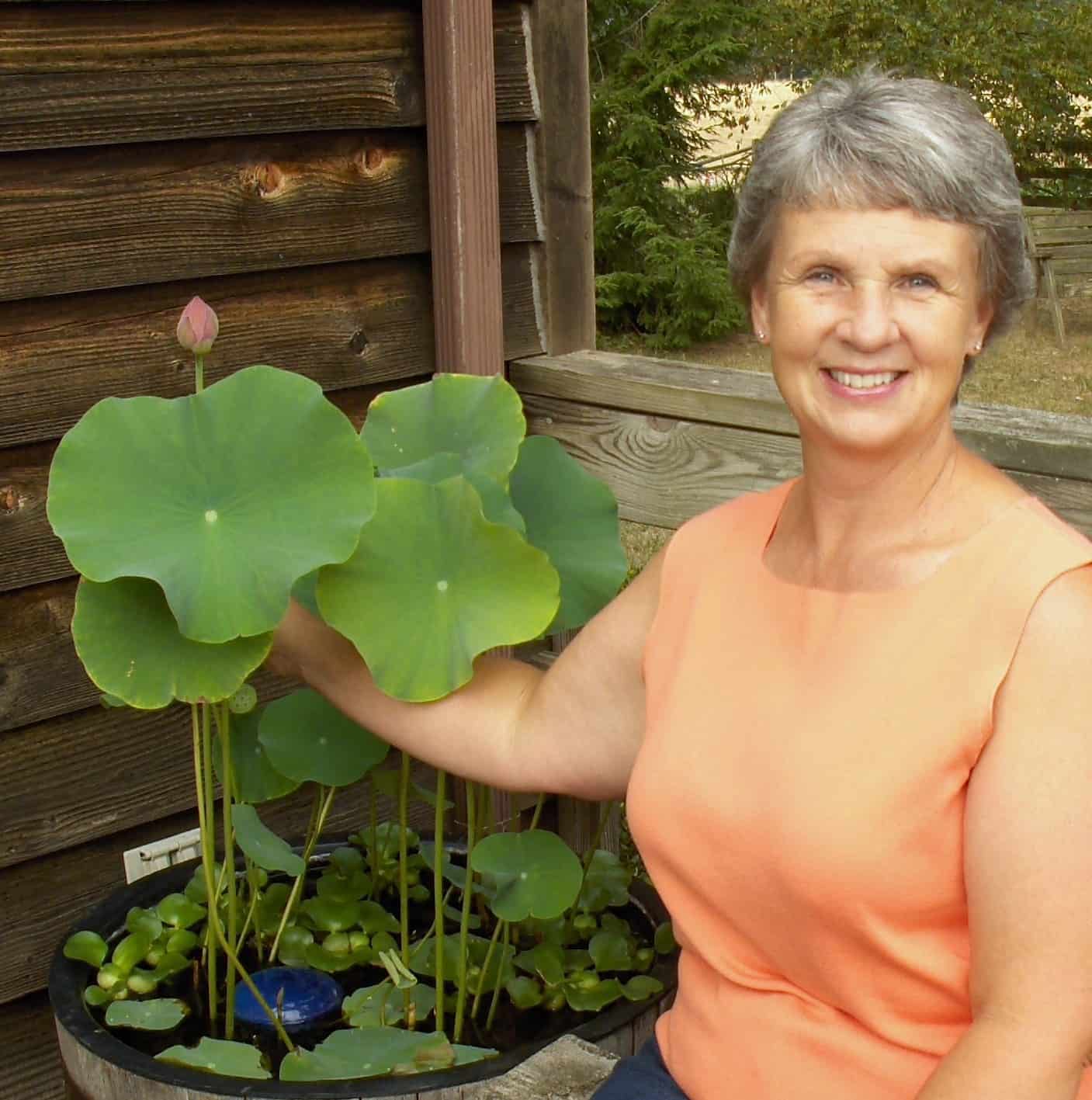
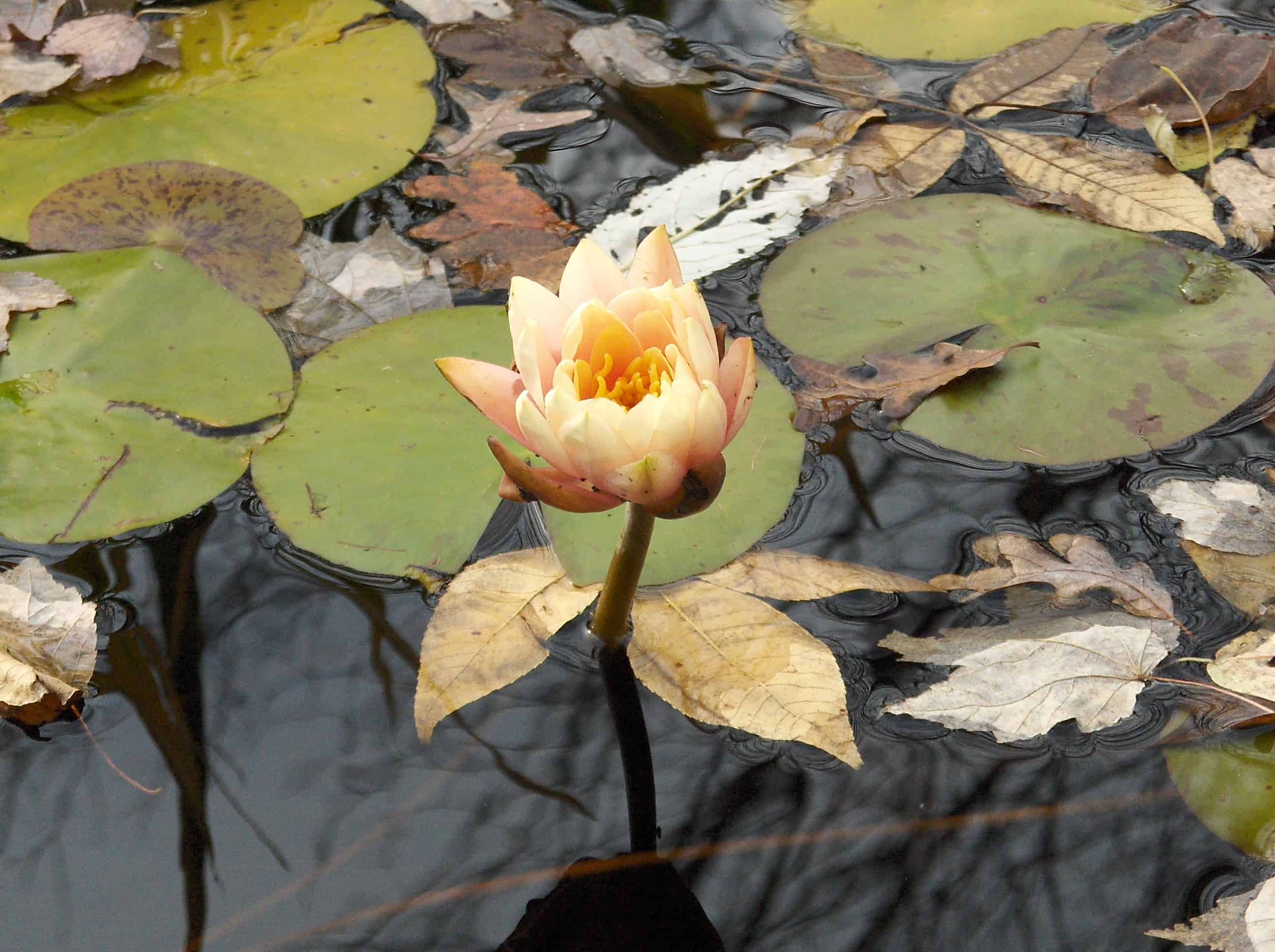




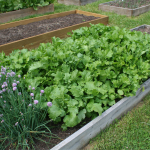
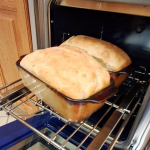
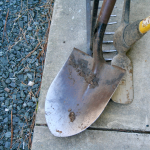
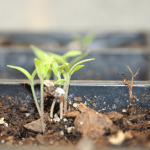
I’ve always admired water gardens and I enjoyed learning about water garden care during the winter months. Your water lotus is bright and beautiful. What a great gift!
Thanks Alli! Fortunately, Liz supplied me with pictures. The pink water lotus is mine, but it’s not in great shape. I was afraid to fertilize the plants because I have goldfish in the pond and I’ve grown fond of them. I didn’t want to hurt them! Next year I hope to do more with my pond.
What a great resource for water gardens! They are absolutely beautiful. 🙂 You’ve taken some gorgeous photos too.
~Lorelai
Life With Lorelai / #HomeMAttersParty
ps; – are you ready to return to Home Matters as a co-host yet, Jeanne? We miss you! 🙂